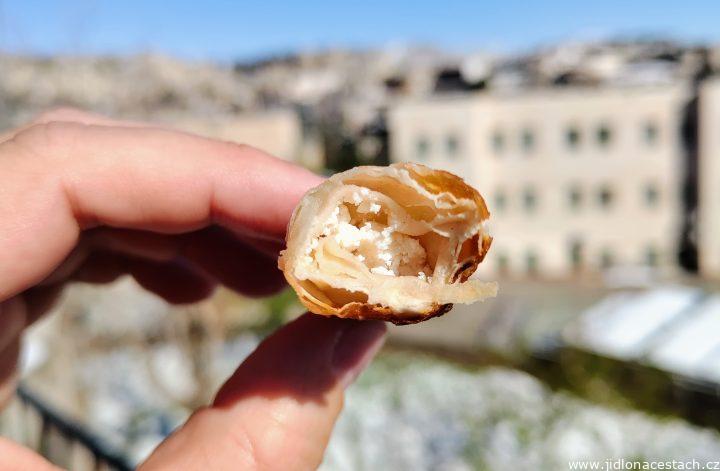Şerbet is a popular non-alcoholic drink originating from the Middle East and Turkey. The drink is traditionally made from fruits, flowers, herbs, spices, or their combinations, boiled in water and then sweetened with sugar or honey. Şerbet is typically served chilled and often accompanied by ice.
In Turkish cuisine and culture, şerbet has a long history dating back to the Ottoman Empire.
Şerbet: Traditional Aromatic Non-Alcoholic Drink

The History and Origins of Şerbet
Şerbet has its roots in Persia and the Arab world, from where it spread to the Ottoman Empire and later to other regions, including the Balkans, the Caucasus, and India. Ottoman culture embraced this drink early in its period of expansion. Şerbet was popular in the Ottoman court, where it was served as a sign of hospitality and luxury. During the Ottoman Empire, there were even special kitchens in palaces dedicated solely to preparing şerbet.
From Turkey, this drink gradually spread to Europe, where it became the basis for modern fruit syrups and lemonades. The word “sherbet” was adopted into English and other European languages, where it refers to sweet fruit syrups or frozen desserts.
Typical Ingredients of Turkish Şerbet
Typical şerbet is based on a natural infusion of herbs, spices, flowers, fruits, and sugar in water. It is not a fermented or alcoholic drink but rather a flavored syrup diluted with water or ice.
The most common base ingredients include:
- Flowers: rose (gül şerbeti), lavender, hibiscus.
- Herbs: basil (reyhan şerbeti), mint.
- Spices: cinnamon, cloves, cardamom.
- Fruits: sour cherries, pomegranates, plums, apricots.
- Sweeteners: traditionally natural sugar or honey.
- Acidity: lemon juice or citric acid (“limon tuzu”).
The ingredients are often boiled first to release their flavors, then strained and cooled. The result is a refreshing, aromatic drink that may be slightly cloudy and vibrantly colored.
The Most Popular Types of Şerbet
The most popular types of şerbet include:
- Rose şerbet (made from rose petals or rose water).
- Citrus şerbet (from lemons, oranges, or limes).
- Pomegranate şerbet (from pomegranates).
- Basil şerbet (from basil and citrus fruits).
- Cinnamon şerbet.
- Tamarind şerbet.
Additional ingredients such as cinnamon, cardamom, cloves, or saffron are often added to enhance the flavor and aroma.
Customs, Traditions, and Symbolism Associated with Şerbet
In Turkish culture, şerbet plays a significant role in various celebrations and ceremonies. For example, it is traditionally served at weddings, engagement parties, birthdays, or celebrations of a child’s birth. Şerbet symbolizes hospitality, happiness, and abundance. During wedding ceremonies, rose şerbet is often served, symbolizing love and harmony.
In earlier times, there were also customs associated with serving şerbet to guests who visited a home. Offering şerbet was a sign of respect, friendship, and warm hospitality. Some superstitions claimed that drinking şerbet made from certain herbs brought health or protection from evil spirits (though these customs are no longer widely practiced today).
Şerbet has many variations in countries such as Iran, India, and Pakistan.
Sorbet as a Successor to Şerbet
Etymologically, the origin of the word “sorbet” (used in English and other European languages) can be traced directly to the word “shariba” (“to drink”). This Arabic word gave rise to “sharbat,” referring to a sweet drink that spread through Persian and Turkish cultures to Europe.
In European languages, the term was phonetically adapted to “sorbet” (Italian “sorbetto”), where it originally referred to a sweet syrup drink or a chilled dessert based on fruit or fruit juices. Over time, the meaning of “sorbet” stabilized as a term for a light fruit-based ice cream without dairy products.
The term “sorbet” thus has its origins in the original word “şerbet.”
Şerbet is not always commonly offered in Turkish restaurants, so I was very pleased to try basil şerbet at the Konya Sufi Restaurant Geleneksel Konya Mutfağı (see Where to Eat in Konya). The drink was pleasantly refreshing, with a strong clove flavor complemented by herbs, and what I appreciated most was that it wasn’t overly sweet. A large glass cost 90 TRY (2.20 EUR).
In Turkey, you can also buy large bags of pre-mixed herbs and spices for making şerbet at home. In my opinion, it’s an ideal treat to bring back as a souvenir from Turkey!
Bon appétit!
🇹🇷 Taste the best of Turkey! Subscribe to my newsletter and I will send you for free everything you need to know to discover and enjoy authentic local specialties in Turkey.


